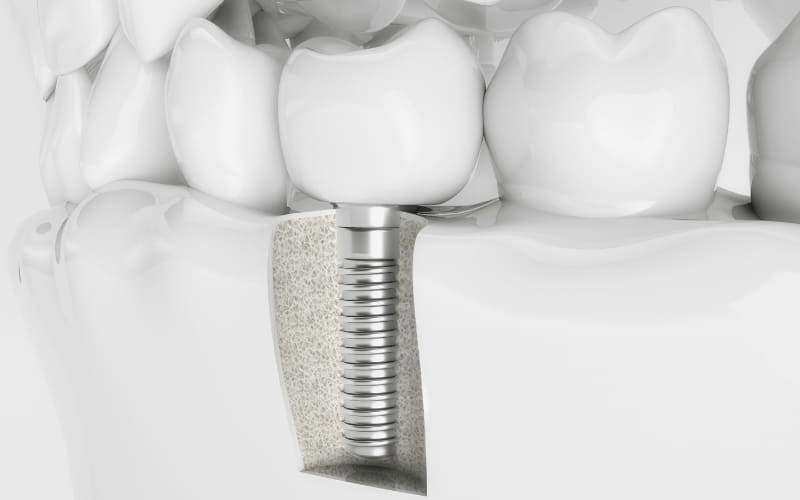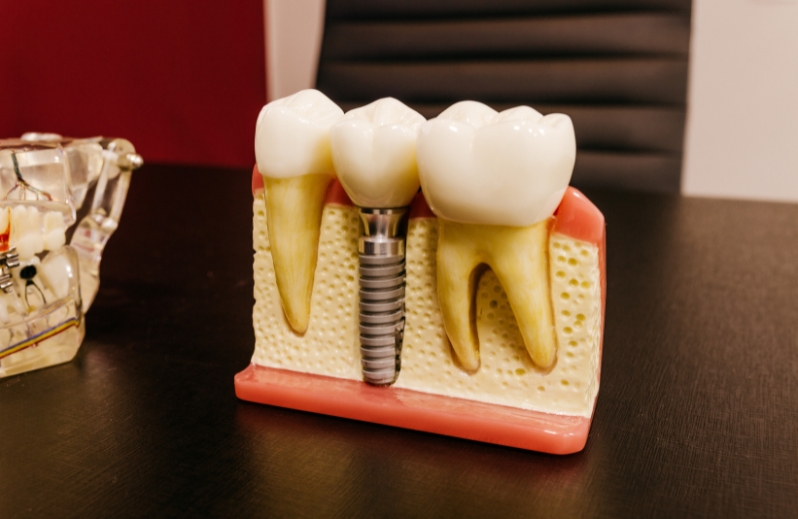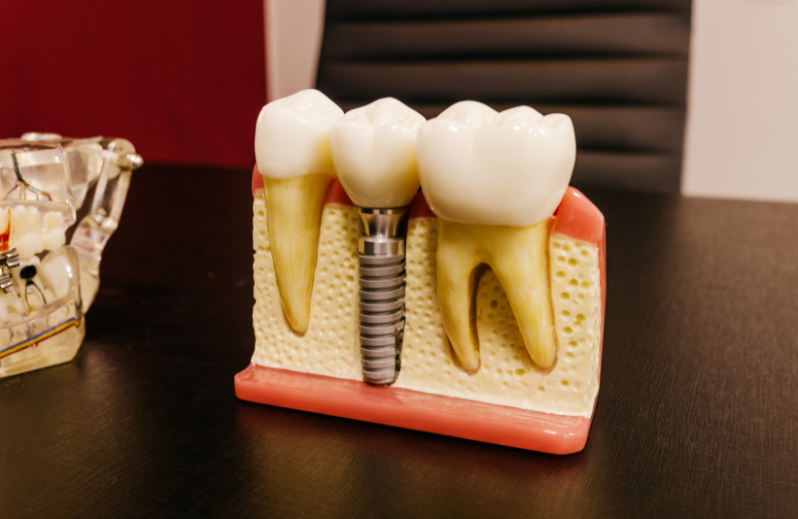


Dental implants have become a popular solution for replacing missing teeth due to their durability and natural appearance. They are surgically placed into the jawbone, providing a stable foundation for artificial teeth. Therefore, recognizing the signs of a failed dental implant early is crucial to prevent further complications and ensure proper treatment. Identifying pain, swelling, or instability around the implant site can be key failure indicators. This blog aims to inform readers about the symptoms and signs of a failing or failed dental implant, helping them seek timely intervention and maintain their oral health. Understanding these warning signs can save time, discomfort, and potentially more extensive dental procedures in the future.
Common Causes of Dental Implant Failure
1. Infection (Peri-implantitis)
Infections around the implant site, known as peri-implantitis, can lead to inflammation and bone loss, ultimately causing implant failure if not treated promptly.
2. Insufficient Bone Density
Adequate bone density is crucial for the stability of a dental implant. Insufficient bone can lead to poor osseointegration (the process where the implant fuses with the jawbone), increasing the risk of failure.
3. Implant Overloading
Excessive force or pressure on the implant, often due to bruxism (teeth grinding) or improper placement, can cause implant overloading, leading to mechanical failure or bone loss around the implant.
4. Poor Oral Hygiene
Neglecting proper oral hygiene can result in plaque buildup around the implant, increasing the risk of infections and gum disease, which can compromise the implant’s stability and health.
5. Medical Conditions and Medications
Certain medical conditions like diabetes or osteoporosis, and medications that affect bone healing or immune response, can impair the success of dental implants by affecting the healing process and bone integration.
Signs Of A Failed Dental Implant
1. Persistent Pain and Discomfort
Ongoing pain and discomfort around the implant site, especially after the initial healing period, can be a sign of implant failure and should be addressed by a dental professional.
2. Swelling and Inflammation
Continuous or recurrent swelling and inflammation in the gums around the implant area can indicate an infection or other issues that may lead to implant failure.
3. Implant Mobility
An implant should remain firmly anchored in the jawbone. If the implant feels loose or moves when touched, it may signal a failure in the osseointegration process or bone loss.
4. Gum Recession
Receding gums around the implant can expose the metal post, leading to aesthetic concerns and an increased risk of infection, indicating potential implant failure.
5. Difficulty Chewing or Biting
Experiencing difficulty or discomfort while chewing or biting, which was not present before, may suggest that the implant is not functioning correctly and could be failing.
Treatment Options for a Failed Dental Implant
1. Implant Removal
If an implant fails, it often needs to be removed to prevent further damage to the surrounding bone and tissues. This procedure helps to eliminate the source of infection or discomfort.
2. Bone Grafting
In cases where bone loss has occurred, a bone graft may be necessary to rebuild the jawbone. This procedure can create a stable foundation for a new implant if the patient decides to pursue a replacement.
3. Antibiotic Therapy
If the implant failure is due to infection, antibiotics may be prescribed to address the infection and prevent its spread. This is often combined with other treatments to ensure complete resolution of the issue.
4. Implant Replacement
After the failed implant is removed and any necessary preparatory treatments are completed, a new implant can be placed. The timing of this replacement will depend on the individual case and healing progress.
5. Soft Tissue Management
Addressing gum health is crucial. Procedures such as soft tissue grafts can improve the gum condition around the implant site, enhancing the overall success of a future implant and ensuring better integration and aesthetics.
Wrap Up!
Recognizing and addressing the signs of a failed dental implant is crucial for maintaining oral health and implant longevity. If you experience any symptoms like pain, swelling, or implant mobility, seek professional advice promptly. Consulting with a Beverly Hills oral surgeon can provide expert care and effective treatment options. Maintaining good oral hygiene and regular dental check-ups are essential for the health of your dental implants. Don’t wait until it’s too late, contact a Beverly Hills oral surgeon today to ensure your smile stays strong and beautiful. Take action now for a healthier, brighter future!




